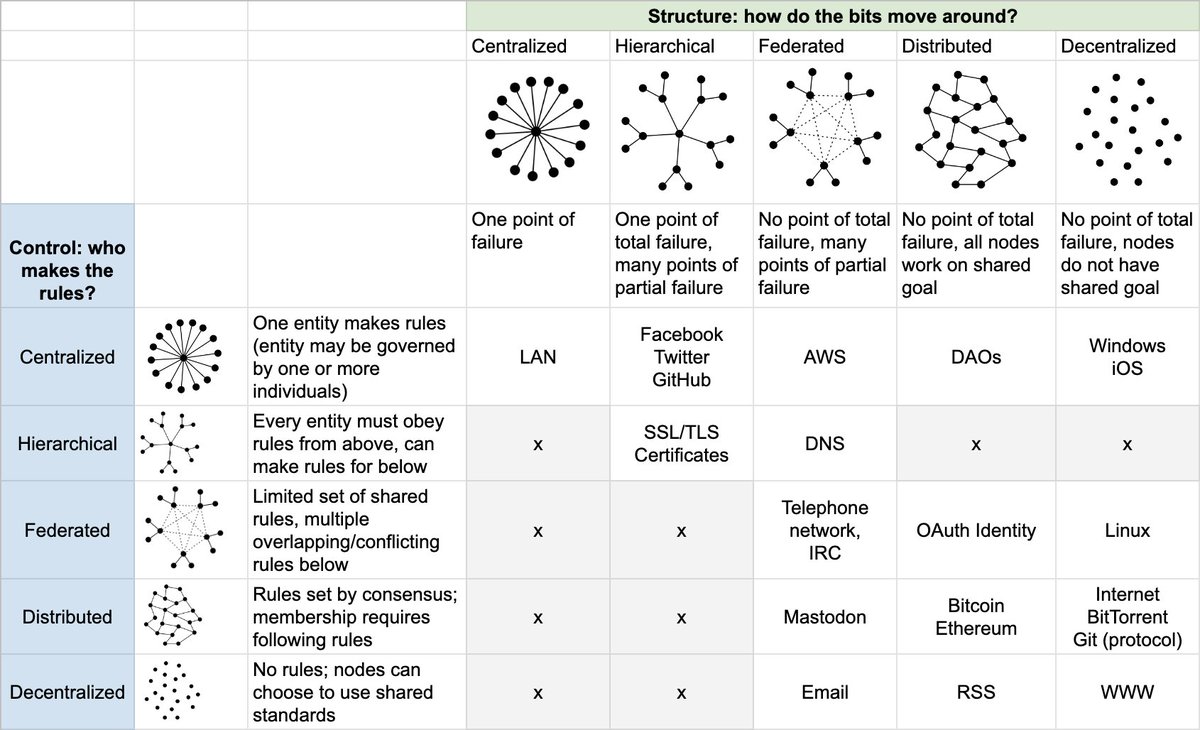This section is almost exactly the same as Umberto Eco's description of a slip box practice:
No piece of information is superior to any other. Power lies in having them all on file and then finding the connections. There are always connections; you have only to want to find them. -- Umberto Eco. Foucault's Pendulum
See: https://hypothes.is/a/jqug2tNlEeyg2JfEczmepw
Interestingly, these structures map reasonably well onto Paul Baran's work from 1964:

The subject heading based filing system looks and functions a lot like a centralized system where the center (on a per topic basis) is the subject heading or topical category and the notes related to that section are filed within it. Luhmann's zettelkasten has the feel of a mixture of the decentralized and distributed graphs, but each sub-portion has its own topology. The index is decentralized in nature, while the bibliographical section/notes are all somewhat centralized in form.
Cross reference:<br />
Baran, Paul. “On Distributed Communications: I. Introduction to Distributed Communications Networks.” Research Memoranda. Santa Monica, California: RAND Corporation, August 1964. https://doi.org/10.7249/RM3420.

 Link to tweet:
Link to tweet: 